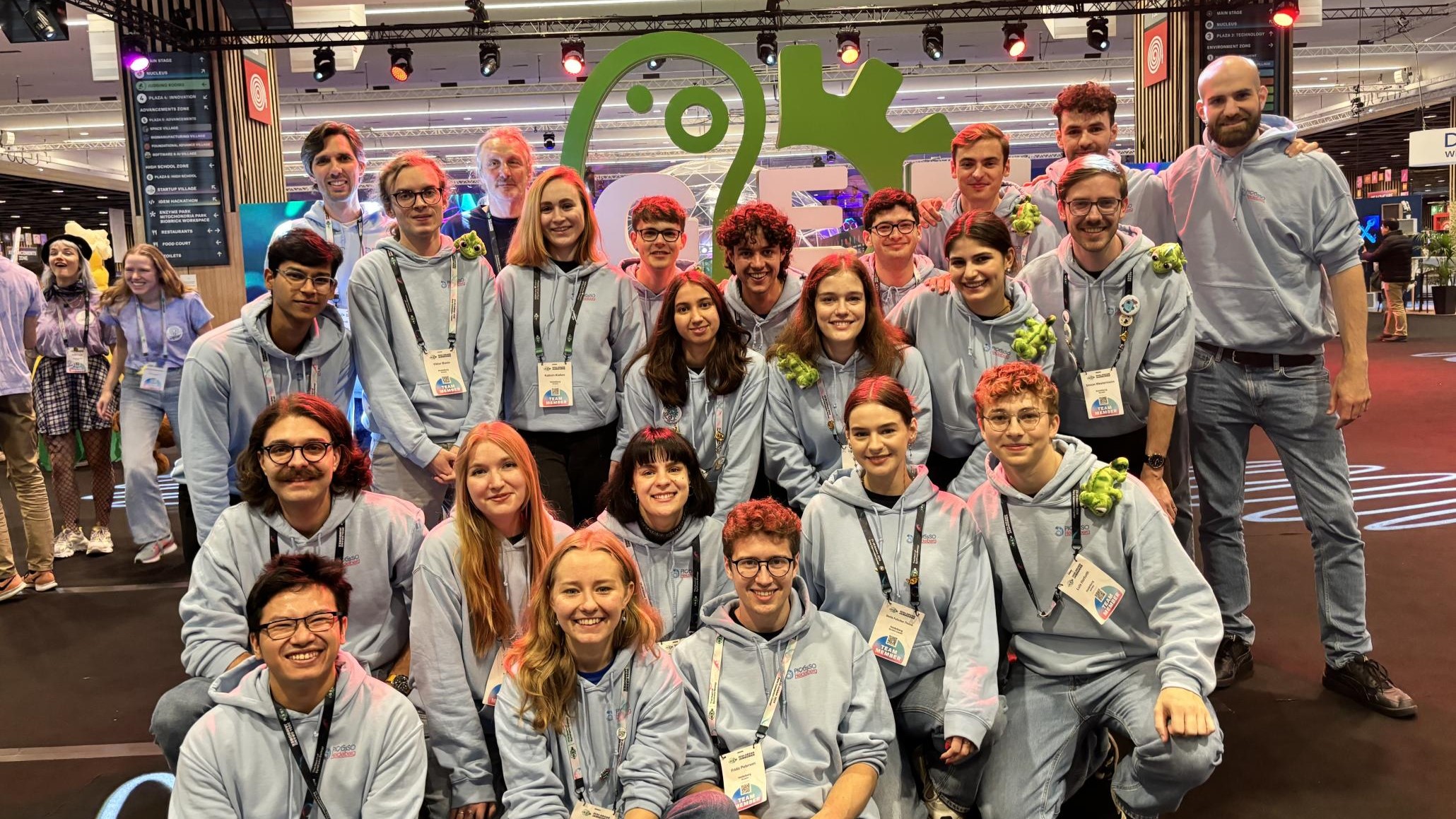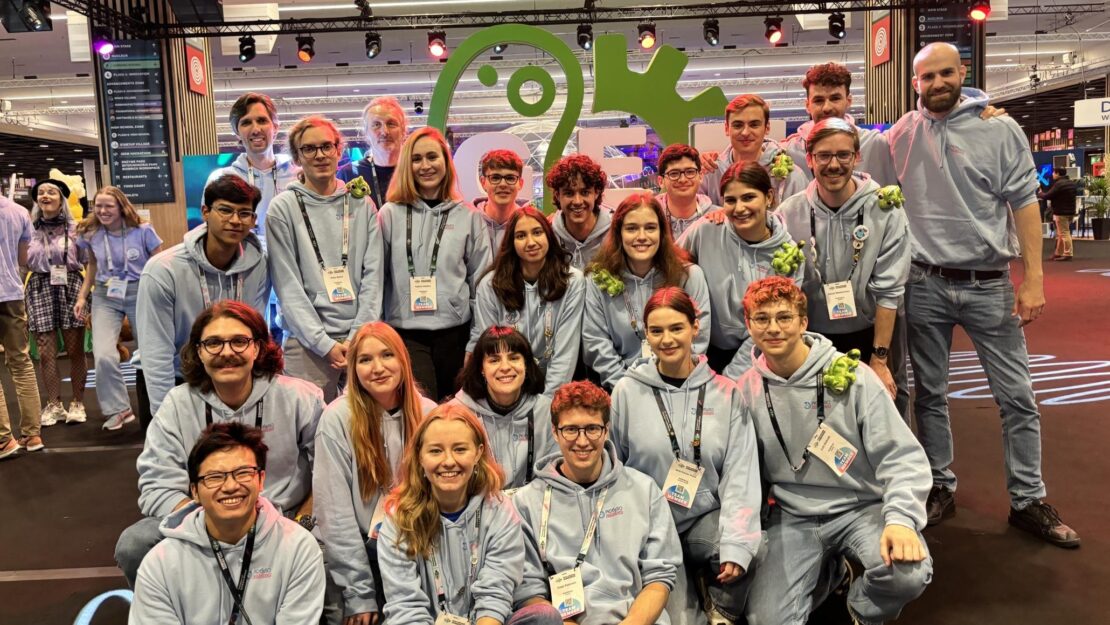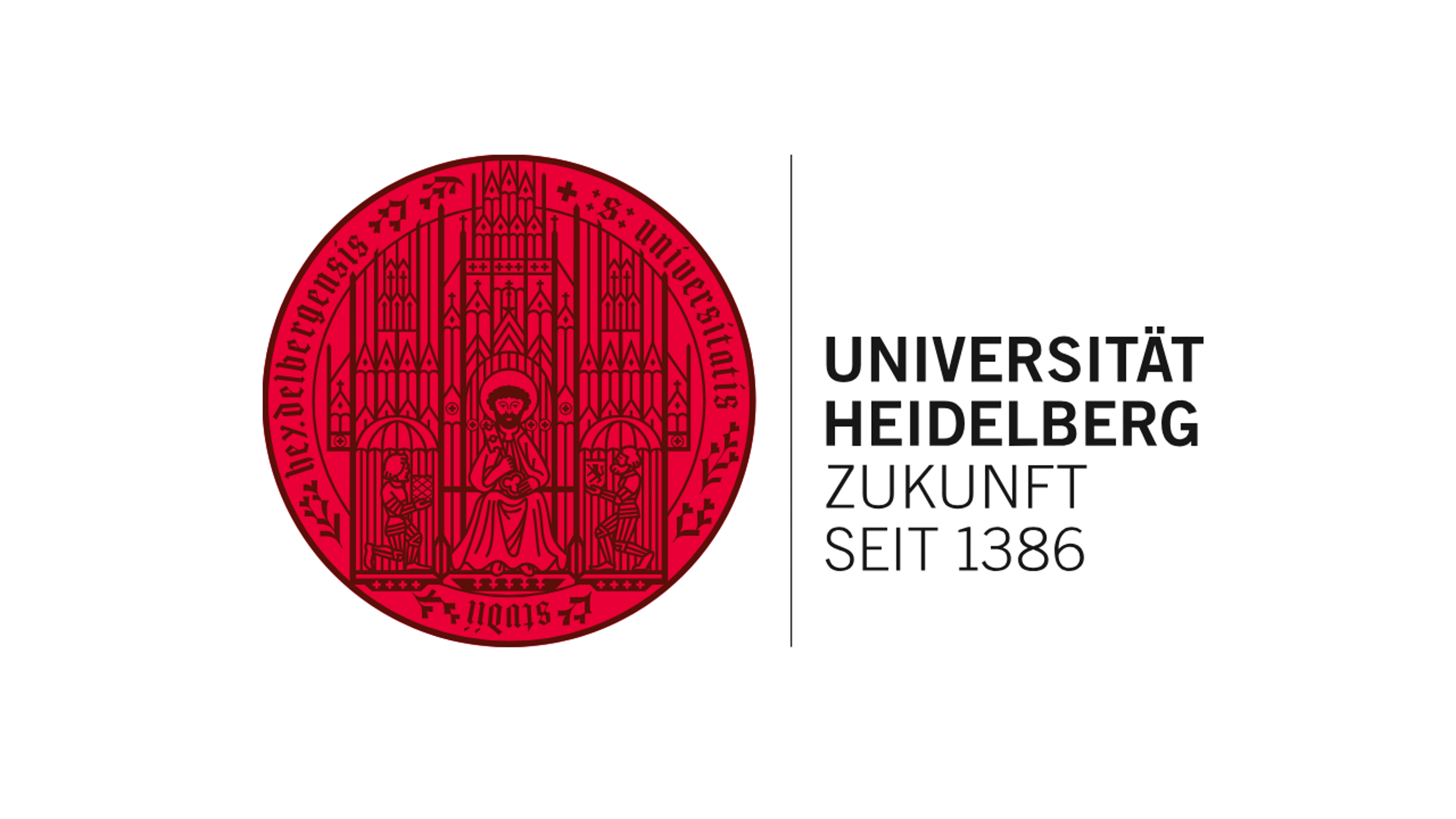Heidelberg student team: overall victory in the renowned iGEM competition in the field of synthetic biology

The Ruperto Carola team impressed with an innovative method for the targeted modification of the 3D structure of genetic material in human cells
A team of students from Heidelberg University took part in the prestigious International Genetically Engineered Machine Competition (iGEM) for synthetic biology with great success – overall victory. It took first place in the “Undergraduate” category. The 20 students from Ruperto Carola impressed the judges at the final in Paris (France) with an innovative method for the targeted modification of the 3D structure of genetic material in human cells, for which they also won several special prizes. The “PICasSO” project was supervised by Prof. Dr. Stefan Wölfl and Prof. Dr. Dominik Niopek, scientists at the Institute of Pharmacy and Molecular Biotechnology at Heidelberg University.
More Information in German below.
Das Team der Ruperto Carola überzeugte mit einer innovativen Methode zur gezielten Veränderung der 3D-Struktur des Erbguts in menschlichen Zellen
Mit großem Erfolg – dem Gesamtsieg – hat ein Team von Studierenden der Universität Heidelberg an dem renommierten Wettbewerb für synthetischen Biologie, der International Genetically Engineered Machine Competition (iGEM), teilgenommen. Es belegte den ersten Platz in der Kategorie „Undergraduate“. Die 20 Studentinnen und Studenten der Ruperto Carola überzeugten beim Finale in Paris (Frankreich) mit einer innovativen Methode zur gezielten Veränderung der 3D-Struktur des Erbguts in menschlichen Zellen und konnten dafür auch mehrere Spezialpreise erringen. Betreut wurde das Projekt „PICasSO“ von Prof. Dr. Stefan Wölfl und Prof. Dr. Dominik Niopek, Wissenschaftler am Institut für Pharmazie und Molekulare Biotechnologie der Universität Heidelberg.
Das menschliche Genom besteht aus langen DNA-Strängen, auf denen die Erbinformation in Form einer Abfolge von Basen kodiert ist. Im Zellkern bilden diese Stränge eine komplexe dreidimensionale Struktur. „Die Interaktion verschiedener Bereiche des Erbguts ist entscheidend dafür, wie die Erbinformation in jeder Zelle interpretiert wird, und beeinflusst damit maßgeblich die Zellfunktion“, erläutert Felicitas Thome, Studentin der Molekularen Biotechnologie und Mitglied des iGEM-Teams. Während der Spezialisierung von Zellen ändert sich dabei auch die räumliche Anordnung des Erbguts, wie Team-Mitglied Enno Schäfer ergänzt.
Die 3D-Genomstruktur kann mit bisherigen Analysemethoden detailliert untersucht werden, jedoch fehlt es bislang an Verfahren, diese Struktur gezielt zu modifizieren. Hier setzt die Methode des Heidelberger Teams an: Sie basiert auf dem CRISPR/Cas-System, das üblicherweise zur Veränderung von DNA-Sequenzen eingesetzt wird. Die Studierenden veränderten das System so, dass es gleichzeitig an zwei verschiedenen Stellen im Genom binden kann und als dauerhafte „Brücke“ zwischen ihnen fungiert. „So lassen sich Genombereiche, die räumlich weit voneinander entfernt sind, in direkte Nähe bringen,“ erläutert Dr. Jan Mathony, Gruppenleiter in Prof. Niopeks Forschungsabteilung und Instruktor des Teams.
Die Studierenden der Universität Heidelberg haben ihr Projekt „CRISPR/Cas-Mediated 3D Genome Engineering via Programmable DNA-DNA Interactions“ (PICasSO) über viele Monate hinweg am BioQuant-Zentrum im Labor und mithilfe von Computermodellen vorbereitet. Das Team konnte die internationale Jury gleich mehrfach überzeugen: Es erhielt auch Auszeichnungen für die beste grundlegende Innovation, die beste Kollektion genetischer Bausteine, das beste Computermodell und die beste Projektdokumentation. „Die iGEM-Teilnahme von Heidelberger Teams hat eine lange Tradition. Schon mehrfach konnten dabei Podestplätze und drei Gesamtsiege bei diesem Wettbewerb für synthetische Biologie errungen werden“, so Prof. Niopek, der sich wie Prof. Wölfl stolz zeigte auf das Abschneiden beim aktuellen Wettbewerb.
Das diesjährige iGEM-Finale fand vom 24. bis 26. Oktober 2024 auf dem Messegelände „Paris Expo Porte de Versailles“ statt. Insgesamt nahmen daran 400 Teams aus mehr als 50 Ländern teil. Die International Genetically Engineered Machine Competition wird seit 2003 von der gleichnamigen Stiftung durchgeführt und richtet sich an Studierende auf dem Gebiet der synthetischen Biologie. Die Teilnahme des Heidelberger Teams wurde unterstützt von der Hans und Ria Messer Stiftung.





